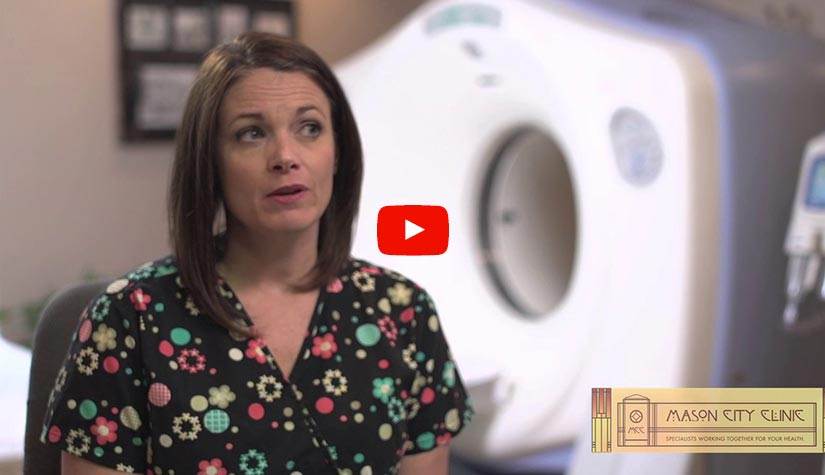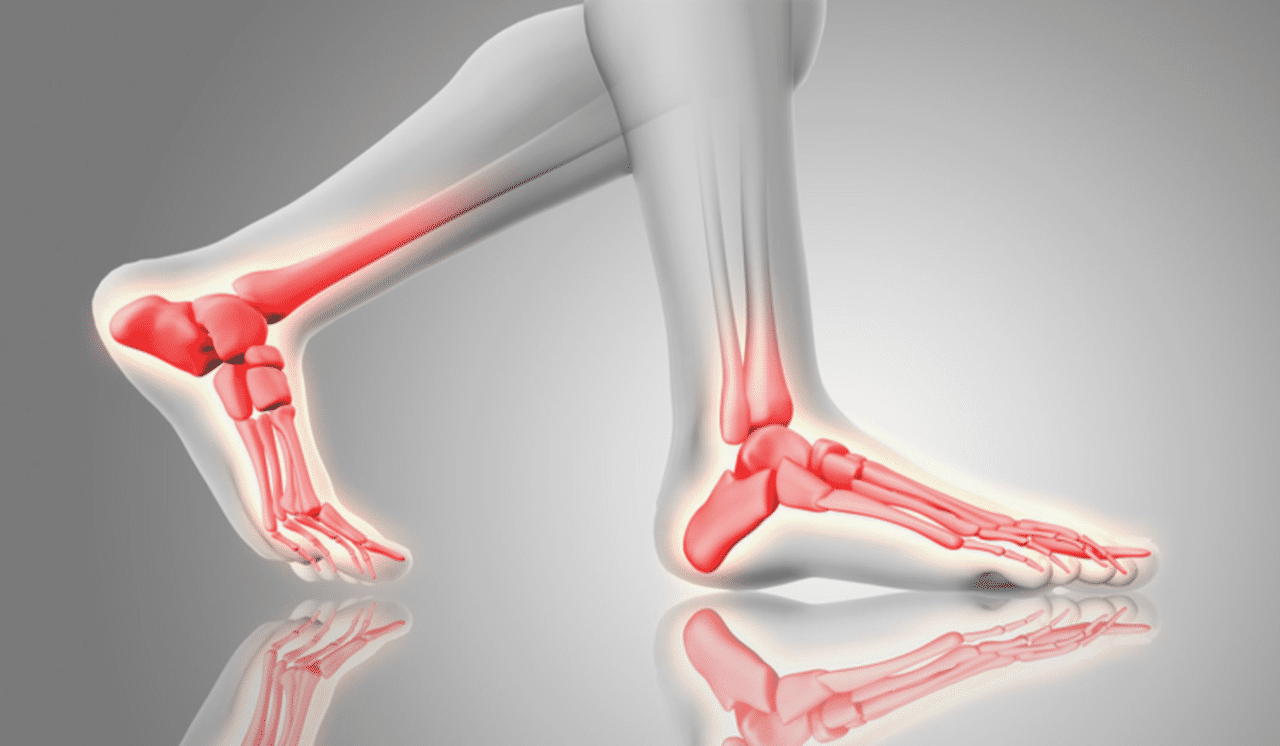Radiology/Imaging
 Mason City Clinic’s Radiology and Imaging Center offers services with state-of-the-art digital imaging equipment. Our Imaging Center’s CT and MRI services are ACR-accredited. Our technologists are licensed and hold advanced certification in their areas of specialty.
Mason City Clinic’s Radiology and Imaging Center offers services with state-of-the-art digital imaging equipment. Our Imaging Center’s CT and MRI services are ACR-accredited. Our technologists are licensed and hold advanced certification in their areas of specialty.
Our mission is to provide the highest-quality imaging services to our patients. Our radiologists are board-certified with many years of experience in all facets of radiology. We offer a clinical staff delivering high-quality care in a comfortable, safe and confidential environment. Our office staff offers helpful and compassionate services with patient satisfaction as their first priority. Our costs are often less than services provided in the traditional hospital setting.
Services Offered
: 250 S. Crescent Drive, Mason City, IA
: 641.494.5250
- General X-Ray Imaging
- Ultrasound – General
: 250 S. Crescent Drive, Mason City, IA
: 641.494.5261
- Ultrasound – Vascular Imaging
: 520 S. Pierce, Suite 100, Mason City, IA
: 641.494.5490
Ultrasound – General and Vascular
Ultrasound, or sonography, produces imaging using high-frequency sound waves. It is especially useful for examining the aorta, carotids, blood flow in the extremities, breasts, bladder, thyroid, kidneys and other abdominal organs for conditions such as abdominal aortic aneurysm, peripheral artery disease, congestive heart failure, thyroid disorder and acid reflux.
During the procedure, the patient is positioned on an examination table and a warm, clear gel is applied to the area being examined. A transducer is then firmly pressed against the skin and swept back and forth to obtain the image.
Magnetic Resonance Imaging (MRI)
MRI provides physicians with a noninvasive method of obtaining high-quality images. It combines a powerful magnet with an advanced computer system and radio waves to produce accurate, detailed pictures of organs and tissues in order to diagnose a variety of medical conditions.
Mason City Imaging offers high-field MRI, which produces a high-quality image in the shortest time, allowing for the most accurate diagnosis to be made.
Preparation required
Before an MRI exam, eat normally and continue to take your usual medications, unless otherwise instructed. You will be asked to change into a gown and to remove things that might affect the magnetic imaging: jewelry, hairpins, eyeglasses, watches, wigs, dentures, hearing aids, underwire bras, etc. It is best to leave your jewelry at home.
Risks
Because MRI uses powerful magnets, the presence of metal in your body may be a safety hazard or affect a portion of the MRI image. Before having an MRI, tell the technologist if you have any metal or electronic devices in your body, such as:
- Metallic joint prostheses
- Artificial heart valves
- Brain aneurysm clips
- Implantable heart defibrillator
- Pacemaker
- Metal clips
- Cochlear implants
- Implanted spinal cord or brain stimulator
- Shrapnel or any other type of metal fragment
- Metal fragments in the eye
Before you schedule an MRI, tell your doctor if you think you’re pregnant. The effects of magnetic fields on fetuses aren’t well-understood. Your doctor may recommend choosing an alternative exam or postponing the MRI.
What you can expect
During the test
- The MRI machine looks like a long, narrow tube that has both ends open. You lie down on a movable table that slides into the opening of the tube. A technologist monitors you from another room. You can talk with the person by microphone. If you have a fear of enclosed spaces (claustrophobia), you may need to contact your physician to be given a medicine to help you feel sleepy and less anxious. Most people get through the exam without difficulty.
- The MRI machine creates a strong magnetic field around you, and radio waves are directed at your body. The procedure is painless. You don’t feel the magnetic field or radio waves, and there are no moving parts around you.
- During the MRI scan, the internal part of the magnet produces repetitive tapping, thumping and other noises. Earplugs or music may be provided to help block the noise.
- In some cases, a contrast material, gadolinium, may be injected through an intravenous (IV) line into a vein in your hand or arm. The contrast material enhances the appearance of certain details. The contrast material used for MRIs is less likely to cause an allergic reaction than the contrast material used for CT scans.
- An MRI can last anywhere from 30 minutes to more than an hour. You must hold very still because movement can blur the resulting images.
After the test
- If you haven’t been sedated, you may resume your usual activities immediately after the scan.
Results of the test
The test will be interpreted promptly and results will be sent to the ordering physician who will share the results with the patient.
Computed Tomography (CT)
CT is a way of looking inside the body using a special camera that takes a complete 360-degree picture. It combines the latest X-ray technology with high-speed computers to capture images of fast-moving physical processes. It can be used to diagnose peripheral artery disease, thyroid disorder, abdominal aortic aneurysm, congestive heart failure and acid reflux. The images produced are cross-sectional and show much greater detail than standard X-ray films. This greatly enhances the healthcare provider’s ability to diagnose a medical condition.
To make a clearer picture of certain parts of the body, some CT exams require the use of contrast material.
Two types of contrast material might be given to you:
By mouth – If your esophagus, stomach or colon is being scanned, you may need to swallow a liquid that contains contrast material. This drink may taste unpleasant.
By injection – Contrast agents can be injected through a vein in your arm to help your gallbladder, urinary tract, liver or blood vessels stand out on the images. You may experience a feeling of warmth during the injection or a metallic taste in your mouth.
Preparation required
Patients will be asked to change into a gown for most procedures. Metal objects can affect the image, so clothing with zippers, snaps, etc. should be avoided. Patients may be asked to remove hairpins, jewelry, eyeglasses, hearing aids and any removable dental work that could obscure the images. Patients may be asked to refrain from eating or drinking anything for three to four hours before the exam. Their healthcare provider will give the patient instructions specific to a particular exam. The patient can leave immediately following the test.
What you can expect
CT scans are painless and, with newer machines, take only a few minutes. The whole procedure typically takes about 30 minutes. Your healthcare provider will give instructions specific to a patient’s particular exam to them.
During the procedure
CT scanners are shaped like a large doughnut standing on its side. You lie on a narrow, motorized table that slides through the opening. During a head scan, the table may be fitted with a special cradle that holds your head still. While the table moves you into the scanner, detectors and the X-ray tube rotate around you. Each rotation yields several images of thin slices of your body. You may hear buzzing and whirring noises. A technologist in a separate room can see and hear you. You will be able to communicate with the technologist via intercom. The technologist may ask you to hold your breath at certain points to avoid blurring the images.
After the procedure
After the exam you can return to your normal routine. If you were given contrast material, you will be told to drink lots of fluids to help your kidneys remove the contrast material from your body.
Results of the test
The test will be interpreted promptly and results will be sent to the ordering physician who will share the results with the patient.
To learn more about our radiology imaging services, please call 641.494.5250 today or use our online form to schedule an appointment. Our radiology patients come to us from Albert Lea, Algona, Belmond, Britt, Buffalo Center, Charles City, Clarion, Cresco, Emmetsburg, Forest City, Garner, Greene, Hampton, Iowa Falls, Lake Mills, Mason City, New Hampton, Northwood, Osage, Waverly and surrounding communities.






 Ten years ago, my Mason City Clinic heart surgeon removed my expiration date
Ten years ago, my Mason City Clinic heart surgeon removed my expiration date  He’s the best doctor I’ve ever had – and I’ve had a lot
He’s the best doctor I’ve ever had – and I’ve had a lot  How do you handle kids if you can’t use your hands?
How do you handle kids if you can’t use your hands?  By replacing her arthritic hip and knee, Charlene can walk in the woods again without pain
By replacing her arthritic hip and knee, Charlene can walk in the woods again without pain  Getting The Hip Replacement Surgery Done At 60 Was The Best Decision I Made
Getting The Hip Replacement Surgery Done At 60 Was The Best Decision I Made  I trusted him 100 percent
I trusted him 100 percent  Bunion pain stopped Melody in her tracks
Bunion pain stopped Melody in her tracks  I didn’t know the pain in my leg came from a ruptured blood vessel in my chest
I didn’t know the pain in my leg came from a ruptured blood vessel in my chest  No more sour grapes about knee pain for me
No more sour grapes about knee pain for me  I Wanted To Dance Up A Storm At My Two Daughters Weddings, And I Did!
I Wanted To Dance Up A Storm At My Two Daughters Weddings, And I Did!  I Now Can Play Football And Basketball With My Grand Nephew.
I Now Can Play Football And Basketball With My Grand Nephew.  I Was Given 23 Years Of My Life…And Counting
I Was Given 23 Years Of My Life…And Counting  I feel great and have none of the heartburn I had for so many years and have lost 12 pounds.
I feel great and have none of the heartburn I had for so many years and have lost 12 pounds.  I feel great. The surgery was easy. Now I can fully enjoy my life with my wife – we garden, bike and visit with our three grown children and three grand-daughters.
I feel great. The surgery was easy. Now I can fully enjoy my life with my wife – we garden, bike and visit with our three grown children and three grand-daughters.  After Breaking Her Wrist In A Fall, Hampton Woman Gets Full Mobility of Her Hand And Wrist Back!
After Breaking Her Wrist In A Fall, Hampton Woman Gets Full Mobility of Her Hand And Wrist Back!  Dr. Scherb and his team are amazing
Dr. Scherb and his team are amazing  Dr. Mulholland Has A Great Team And They Know Exactly What They Are Doing
Dr. Mulholland Has A Great Team And They Know Exactly What They Are Doing  I would recommend Dr. Henrich to anyone.
I would recommend Dr. Henrich to anyone.  Iowa Falls Woman In Full Kidney Failure, Now Planning A Hiking & Fishing Trip Out West
Iowa Falls Woman In Full Kidney Failure, Now Planning A Hiking & Fishing Trip Out West  Mason City Woman Back On Her Feet Again After Hammertoe Surgery
Mason City Woman Back On Her Feet Again After Hammertoe Surgery  Charles City Woman Finds Relief From Sleep Apnea Symptoms and CPAP mask with New Procedure Called Inspire Therapy
Charles City Woman Finds Relief From Sleep Apnea Symptoms and CPAP mask with New Procedure Called Inspire Therapy  Local man who struggled with the chronic symptoms of sleep apnea gets significant relief with new implantable device
Local man who struggled with the chronic symptoms of sleep apnea gets significant relief with new implantable device  Garner woman says her ‘Tummy Tuck’ not only gives her self confidence, it’s the motivator for staying healthy.
Garner woman says her ‘Tummy Tuck’ not only gives her self confidence, it’s the motivator for staying healthy.  Local Woman Gets A Total Knee Replacement Enabling Her To Step Back Into The Joys Of Her Life!
Local Woman Gets A Total Knee Replacement Enabling Her To Step Back Into The Joys Of Her Life!  Garner woman gets back to active life quicker after having a new & innovative bunion surgery, performed only at the Mason City Clinic.
Garner woman gets back to active life quicker after having a new & innovative bunion surgery, performed only at the Mason City Clinic.  Weight Loss Surgery Helped A Fort Dodge Man Lose 100 Pounds, Bring His High Blood Pressure To Normal, and Eliminate Knee Pain
Weight Loss Surgery Helped A Fort Dodge Man Lose 100 Pounds, Bring His High Blood Pressure To Normal, and Eliminate Knee Pain  Mother Of Four And Special Education Teacher Loses 100 Pounds Through Gastric Bypass Surgery, And Feels Happier Than Ever
Mother Of Four And Special Education Teacher Loses 100 Pounds Through Gastric Bypass Surgery, And Feels Happier Than Ever  New Aortic Valve Replacement Procedure Called TAVR Giving Patients Their Quality of Life Back
New Aortic Valve Replacement Procedure Called TAVR Giving Patients Their Quality of Life Back  Clear Lake Man Treated Successfully For Atrial Fibrillation Credits Cardiologist Dr. Michael Spooner For Managing His Care So Well
Clear Lake Man Treated Successfully For Atrial Fibrillation Credits Cardiologist Dr. Michael Spooner For Managing His Care So Well  Self-Detection Helped Mason City Woman Catch Her Breast Cancer Early Said Mason City Clinic Surgeon Caitlin Lund, DO, Was Compassionate & Kind
Self-Detection Helped Mason City Woman Catch Her Breast Cancer Early Said Mason City Clinic Surgeon Caitlin Lund, DO, Was Compassionate & Kind  Harold Lewis – Jennifer McCambridge, PA; Samuel Congello, DO – Cardiology (Stents, Defibrillator)
Harold Lewis – Jennifer McCambridge, PA; Samuel Congello, DO – Cardiology (Stents, Defibrillator)  Emmetsburg Man Had Ankle Replacement & Has Increased Mobility, Less Pain Credits Orthopedic Surgeon & Podiatrist At MercyOne North Iowa Specialty Care at Mason City Clinic For His Successful Surgeries
Emmetsburg Man Had Ankle Replacement & Has Increased Mobility, Less Pain Credits Orthopedic Surgeon & Podiatrist At MercyOne North Iowa Specialty Care at Mason City Clinic For His Successful Surgeries  Three surgeries in a year has this Woden farmer back to his daily work and golf game. Credits orthopedic surgeon Dr. Michael Crane for helping him feel ‘fantastic’
Three surgeries in a year has this Woden farmer back to his daily work and golf game. Credits orthopedic surgeon Dr. Michael Crane for helping him feel ‘fantastic’  George Mathews
George Mathews  Clear Lake Woman Finds Joy In Outdoor Activities Again. Pain Specialist at the Mason City Clinic Helped Relieve Her Hip Arthritis Pain, Without Surgery.
Clear Lake Woman Finds Joy In Outdoor Activities Again. Pain Specialist at the Mason City Clinic Helped Relieve Her Hip Arthritis Pain, Without Surgery.  Fredericksburg Woman Gets High Quality Care Close To Home
Fredericksburg Woman Gets High Quality Care Close To Home  Partial Knee Replacement Allows Iowa Woman To Live Without Pain
Partial Knee Replacement Allows Iowa Woman To Live Without Pain 



